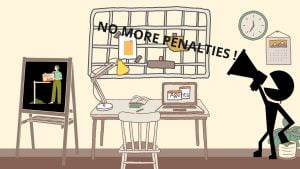When renting a property you need to pay a deposit upfront. This could be for one to three months in advance.
In South Africa landlords are legally required to put rentals into an interest-bearing account with the interest rate at least as high as a standard savings account. This will ensure that there are enough funds to repair damages. Tenants can request proof of added interest at any time.
How can a landlord use a deposit?
It can be used to repair any damages made by the tenant in the leasing period. If this is the case, the landlord must provide the tenant with a breakdown (interest incuded) and the remaining balance within 14 days.
It can also be used to cover costs for a legal eviction.
If there are no damages, or unpaid rent, the deposit plus interest must be refunded within 7 days.
How can a deposit not be used?
For general maintenance and repairs e.g. peeling paint.
Fines for unpaid rent.
Before the tenant moves in.
Inspect the property for any damages. Best done by the tenant and the landlord.
Make sure there is an inspection report and any other relevant documents regarding the condition of the property.
Keep a copy of the signed lease agreement.
The tenant must make sure of everything contained in the lease agreement. Check all clauses and timeframe for returning of the deposit, also what deductions are allowed.
Moving out.
After the lease is concluded the landlord is required to return the deposit. Landlord and tenant must inspect the property and see that it is documented. If this is not done by the landlord, then the property is considered as in good condition and the deposit including the interest must be refunded in full.
When your deposit is not refunded.
If there were no damages and still your deposit has been withheld, you have different options to look at.
Try communicating with the landlord.
Contact the Rental Housing Tribunal (RHT) and file a complaint.
Go to the Small Claims Court.
See an attorney who specializes in rental law.
Read more:
Take note that the content above is merely set out as the opinion of the author and his interpretation of the relevant legislation. It will not be regarded as a legal opinion and nor does the writer intend it to be. It is imperative that any reader obtain his own legal opinion relating to any of the content above and will the writer hereof or his employer not be held responsible for any of the content of this article



